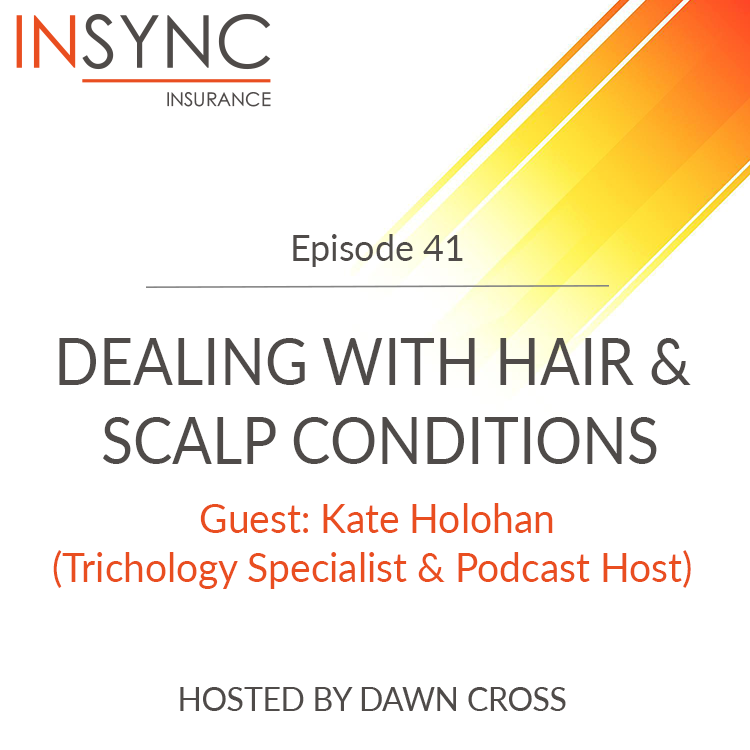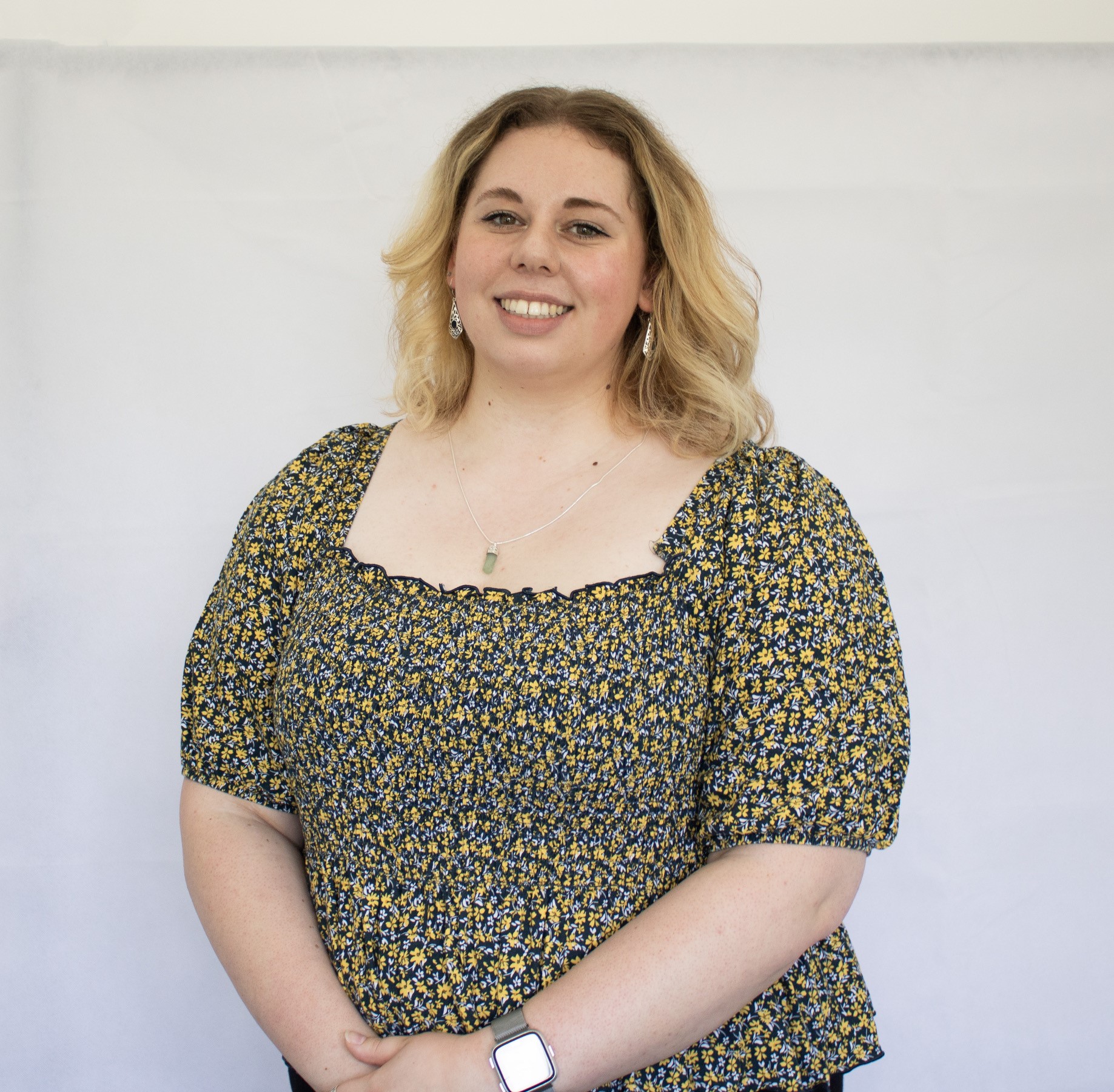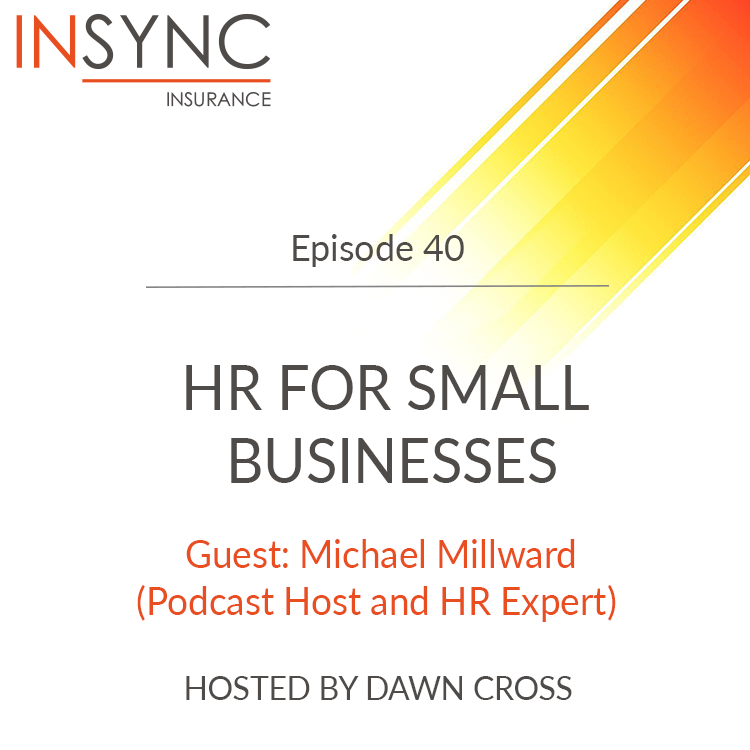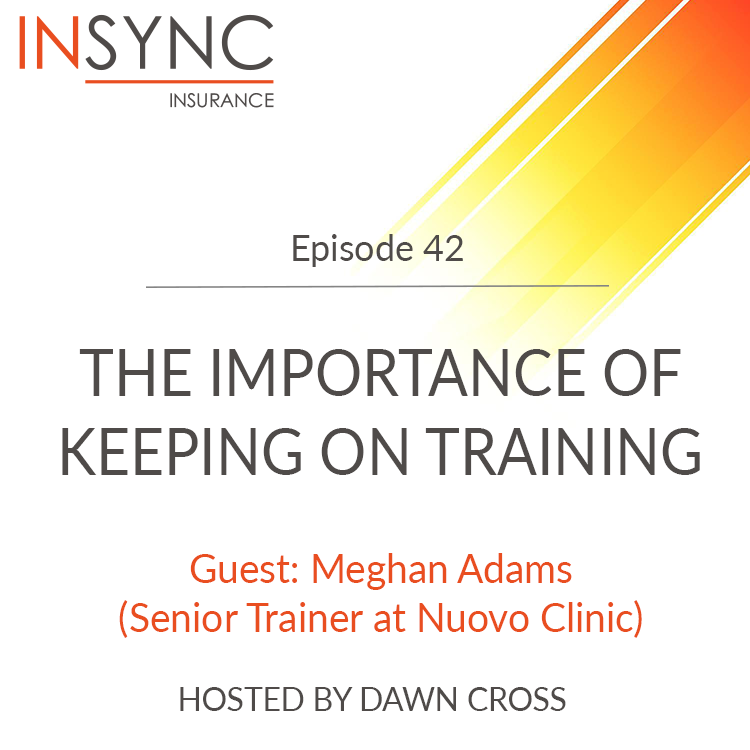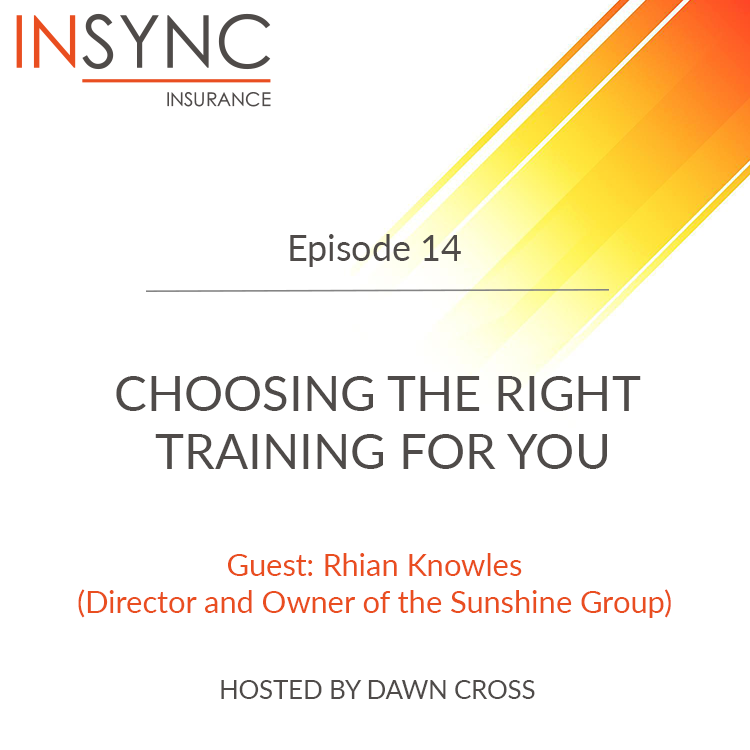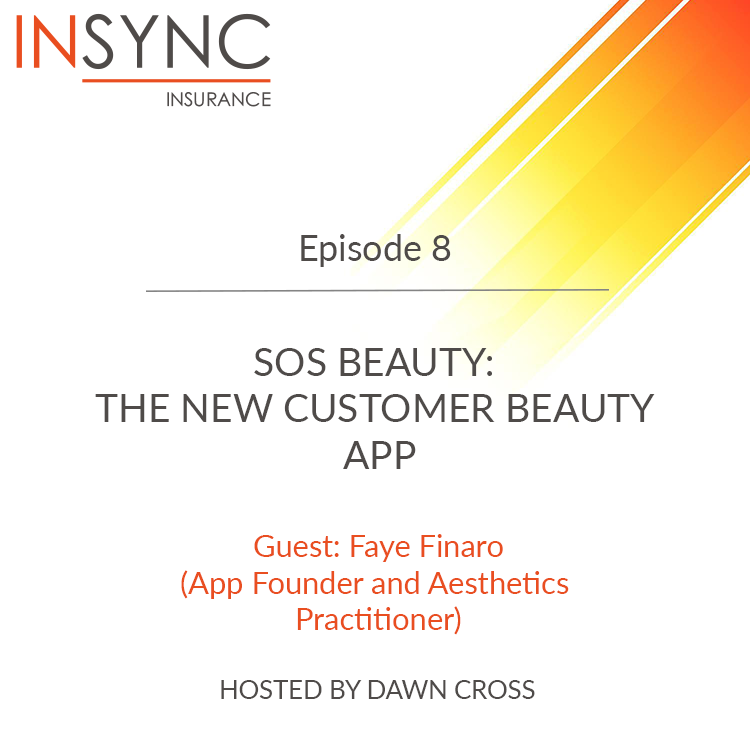Episode Transcript
[00:00:02] Speaker A: Welcome to the Instync Assurance podcast. I'm your host, Dawn Cross, and today I'll be discussing dealing with hair and scalp conditions with Kate Holohan, trichology and hairdresser expert.
If you enjoy our podcast, make sure to leave a rating on your favourite podcast directory.
[00:00:19] Speaker B: Brilliant. So if I could get you to start off with, could you introduce yourself and what you get up to in your work?
[00:00:26] Speaker C: Yeah. So my name is Kate Holohan, I live in Kent in the UK, and I am a trichologist. So I am a hair and scalp specialist.
So I started my career as a hairdresser 25 years ago.
Been in the industry all that time.
I've been educating for around 20 years. I teach all aspects of hairdressing. And then in 2019, just before COVID hit, I became aware of the profession of trichology.
So even with myself being in the industry all that time and not having and been doing education as well and teaching, I still had not really heard of trichology and didn't really know what it was. So as soon as I got introduced to that and realized that you could specialize in the actual science and the functions of the hair and scalp and delve that bit deeper and kind of learn about things like hair loss, hair and scalp health on a much deeper level, then I was literally, I went to a hair health evening in London hosted by the Fellowship of British Hairdressing. And literally that night I was emailing the institute of Trichology in London saying, please sign me up for the next course that you do. And signed up for two years, full on hard work.
And so now I really get to help people, which is really lovely.
[00:02:09] Speaker B: Sounds amazing. So what kind of drew you to.
[00:02:13] Speaker A: Then to become a churchologist?
[00:02:14] Speaker B: Obviously, you say you went to one of the evenings where you can kind of learn a bit more, like, what's, what's so intriguing about it to you?
[00:02:23] Speaker C: I think when you're first learning about hair, so when you're training as a hairdresser, it's a bit like when you're trying to learn how to drive a car. So you're almost so worried about what gear you're in, you. You don't really know what you're doing. You're trying to look at the mirror and concentrate and worry about this, and it's quite a lot and it's very creative. So I've always been quite a creative person. I've quite enjoyed, you know, just being able to make people look really good, have that kind of instant result as well, of someone comes in and they're not really feeling great, and the hair's a bit meh. And you can really transform that. That's amazing. But I think as you go through in the hair industry, for some people, if you're like me, who always wants to learn a new thing, always wants to be kept up to date with everything, you know, always going on courses, always learning. I kind of got to that point where I knew quite a lot around the hair and scalp and colour. I knew about cutting, I knew about styling.
But if I had a client that came in and they said, oh, I've got a really bad scalp condition or I've got hair loss, I really didn't know then what to do. I couldn't help them. I was a bit out of a loss of what to say and I didn't really know how to approach it. And I didn't really have any kind of confidence in my answers because my education in that area was definitely less than really any other area in my field. And I think when you work with people for such a long time and you get these clients coming in and they start to come in with these problems, or you have a client that maybe you've known for 1015 years, and then they say, oh, I'm going to lose my hair, I've got to have chemotherapy. You start to want to be able to support them on a much deeper level and want to be able to have answers and to help them. And that was what was kind of led me into studying trichology, because once I found out how much I didn't know, I'm the kind of person that wants to get that information, wants to learn it all. And as much as it was very difficult and it was a lot of study, I am quite a geek, I think, deep down. So all the science I loved, all the biology, all the chemistry was really interesting. And learning about ingredients more as well in the products, it's really helped me to give a much more kind of comprehensive overview to my clients and my patients on what's actually going on with them, what they could do to improve their hair, to help them with things like hair loss, scalp health, and actually get, you know, a bit of education, a bit of answers.
So it's.
It was a lot, but I've definitely really, I don't regret it. I really enjoyed being able to do that. It's definitely helped me elevate what I can offer people.
[00:05:35] Speaker B: It does sound really amazing. And the fact that, you know, down to it, there's a lot more that you can do to help people by knowing more about the scalp, scalp conditions, or hair conditions. So you're able to kind of work with your customer rather than just, oh, well, I don't know anything about that. And then, unfortunately, they have to go somewhere else. You can almost, like, tailor the experience to a whole new level and also just, like, help them feel seen and happy as well. Isn't it, really?
[00:06:01] Speaker C: Yeah. And I think that's part of the problem, is a lot of people really don't know where to turn.
And as I said, I'd been hairdressing for 20 years at the time, and I still would not have known to refer my clients to a trichologist. So I think, especially now in this kind of day and age, we need to be approaching client care quite holistically.
And building up a network of other qualified professionals in complementary areas, I think, really helps you just to be able to look after that client a little bit more. So, of course, by no means am I saying that every hairdresser needs to become a trichologist, because it is a specialist field. And on the flip side of that, you don't have to be a hairdresser to become a trichologist. Anyone could become a trichologist. But I do feel having years of experience dealing with the hair and scalp and dealing with people does really give you an advantage if you're deciding to train in trichology.
But I think just knowing, you know, having some kind of help for your client, even if all you do is refer them on to someone else, it still shows you as a knowledgeable professional. It still kind of gives that client a signpost of somewhere that they can go for help, rather than just saying to them, oh, I'm sorry, I don't know about that. And leaving them to go and kind of don't try and find out on its own, because if you google hair loss, you will not. You won't get anything useful. Unfortunately, it's a bit of a minefield, and there's quite a lot to wade through. And we all know it's nice to be able to recommend people that you know and you trust and that you're aware of that are going to be professional. And they're not gonna, you know, we like to call people snake oil salesmen, where they say, oh, yeah, this will definitely cure your hair loss. And you're like, I don't think you can really promise that.
So I think since COVID as well, and the changes that we've seen in people, in their bodies, in how they react to things. We've seen more sensitivities, more reactions, more hair loss as well from various different things, including Covid, vaccines, all sorts of things.
It is being talked about a little bit more, and it is starting to become more normalized to kind of discuss these kind of things.
So, like I said earlier, I think having a bank of maybe, you know, a nutritionist that you know, or you've worked with a dermatologist, maybe even a counsellor, things like scalp micropigmentation or semi permanent makeup might be really useful to know someone who's really good at that. For example, I know people that do it for clinical reasons, not cosmetic.
So if someone is losing their eyebrows or their facial hair, and they want to get semi permanent makeup, they may not have that for a cosmetic point of view. They might want it to look really natural and like they haven't had it done. So, fitting the right people to your client, I think, is important, but I think it's just going to help your business grow, I think, as well, and help you to be able to meet the needs of the people that are coming through. That was the thing for me, really. I wanted to be able to meet my clients needs better.
[00:09:55] Speaker B: That sounds really awesome. Do you have any resources or places that people can go then, if you know, they're listening and they're thinking, I'd love to learn a bit more about.
[00:10:05] Speaker A: That for my clients.
[00:10:06] Speaker B: What are things that they can account for to help educate themselves?
[00:10:11] Speaker C: Well, funnily enough, Dawn, I have a podcast myself called the Hair Therapy podcast.
So on the hair therapy podcast, we like to get guests in who are either knowledgeable professionals, so they might come and talk about a certain treatment or products or a certain aspect of hair loss, like a specific alopecia condition or, you know, using minoxidil, does it work? That kind of thing? And then I also have real life stories as well. So for anyone who's actually going through alopecia, or they think they might be or have severe scalp problems, there is probably by now I've got. I'm up to season eight, just about to start. So there probably is within the library, hopefully an episode or two on whichever subject you might be interested in or your client might be interested in. There's episodes on there about pre and post chemotherapy support, cold cap when it's safe to get your hair coloured, how to cut and fit wigs, how to make sure you can get a wig that might help you. So there's lots of different things on there, which obviously you can listen to in complete privacy, no one even needs to know you're doing it.
For any hairdressers or barbers or hairstylists who want to get a little bit more insight into the hair and scalp and maybe get a little bit more confident in actually approaching their clients, you know, even if it's just they've noticed something, I think, oh, should I say something or should I not say something? Oh, well, if I mention the fact they've got a bald spot, they might ask me what do I do about it? And then I don't really know. So I'm just not. I'm sure they know I'm not going to tell them.
So for anyone that wants to grow their knowledge in this area, gain a bit more confidence, get a little bit more understanding.
I also run a one day course called the hair and scalp salon specialist. So I run that both in person in Kent and online as well. So for people that are a little bit further or don't want to travel, they can still enjoy taking the course. I do online days as well, where we actually get to use a trichoscope. So like a small kind of scalp dermatoscope, and we can microscopically look at the hair and scalp. You can start to explore what the hair follicles look like, what different hairs look like, what different conditions look like, what to see, what to expect, and then, you know, when to refer, what you can recommend to these people. So I've had some really, really great feedback from it as well, from people that have done it. And I think the people's clients have really appreciated it as well because they instantly know that they're getting that higher level of care and attention.
[00:13:14] Speaker B: No, that's absolutely brilliant. I love that. And I love the idea that obviously you've made it accessible for anyone who's further away. They can at least come in virtually and then obviously they can see physically as well. And obviously the podcast is there and it's free and it's.
I'm assuming it's accessible on as many platforms as possible. I mean, if you're paying for a podcast platform, as a listener, I don't think it's real, but it's nothing I've come across.
[00:13:43] Speaker C: Yeah, mine's not. It's not a subscription.
You can get it on anything. So everything is basically hair therapy. Hair therapy UK. So it's the hair therapy podcast. It should be on all platforms and wherever you get your podcasts on Instagram is hairtherapy UK? On Facebook is hair therapy UK. On threads is hair therapy UK? On Clubhouse. I think it's hair therapy on x hair therapy UK.
LinkedIn is Kate Holohan. I think I'm probably most active on Instagram, but I am on many platforms. So again, even if you've got a client that you're worried about, I have set up a hair and scalp salon specialist Facebook group, so people are welcome to join that as well. Especially if they want to ask discreetly about a specific client's condition or problem. Then they can get help and support in there with reliable, knowledgeable answers. So only people that have experience with hair and scalp will obviously be answering that. It won't be just, oh, I've heard if your client lies upside down for 3 hours a day, then all her hair will grow back. Or, you know, whatever, whatever the random thing. It's this week. Oh, shave all their head.
No.
[00:15:11] Speaker B: Not always the answer. Is there anything else you'd like to add then, before we wrap up the episode today?
[00:15:18] Speaker C: Like I say, I'm always available, so if anyone ever wants to contact me for any further information, then they're more than welcome.
I just hope that I can kind of help spread the word of trichology and how we can help people and encourage people to, you know, get that bit of knowledge, get that bit of confidence and growing themselves. Because any education that you get, I think, is never waste of time, you know, even if you get something different to what you thought you were going to get out of it or you don't see the benefit at the time, I'm a real believer that all our experience and all our education and everything that we do in our lives all kind of weaves into this tapestry and then one day we'll, we kind of realize, oh, that's why that happened, or that's why I did this, or, oh, your unique experiences all blend in to support you, be you.
And so I think it's really important, if you get inspired by something, it's really important to follow that and go for it.
[00:16:28] Speaker B: Definitely. Thank you so much for coming on today.
[00:16:31] Speaker C: Yeah, it's been a pleasure, dawn. Thank you for having me.
[00:16:36] Speaker A: Thank you to my guest today, Kate Holohan, for chatting about her experience in learning about and dealing with hair conditions. If you're interested in a workshop or podcast, please click the links in the description.
I have been your host on cross and tune in next week for another episode.
Insync is one of the UK's fastest growing insurance providers offering comprehensive cover for SME's and are self employed across the UK. Our expert team can tailor your insurance, meet your individual business needs and compare prices. From our Lloyds of London approved partners, we offer a five star service and open FIFO platinum. Trusted winners five years in a row.
